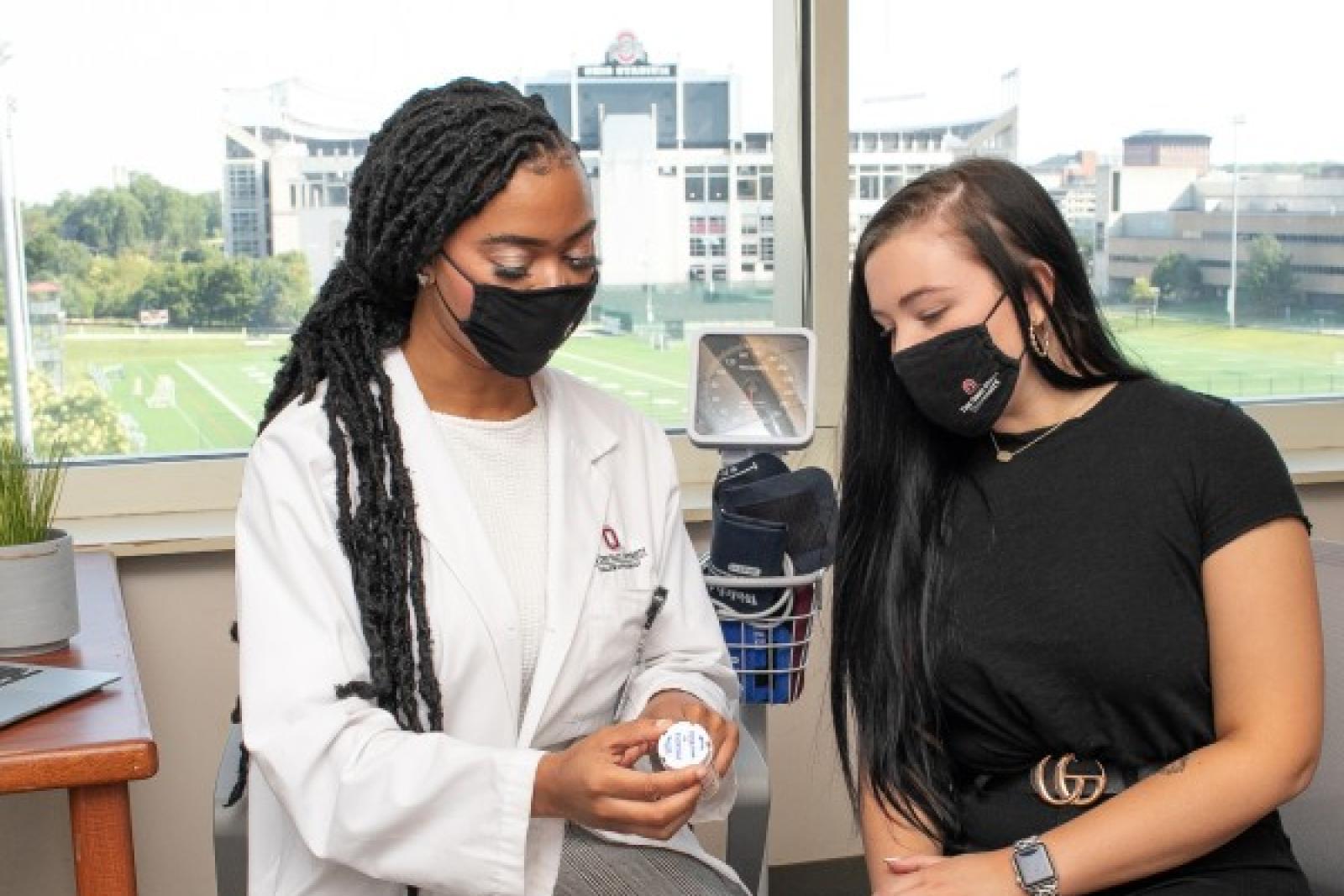Columbus pharmacist's reassurance makes the difference for her patients

Article originally posted in the Columbus Dispatch on Nov. 16 by two College of Pharmacy Faculty Members.
In a health care system plagued by inequity and stressed to its limit by the COVID-19 pandemic, the relentless work of hospital and clinic staffs has become legendary. But another group also is making a major impact. They’re the health care providers that most people see more than any other: community pharmacists.
Last month, we observed American Pharmacists Month to honor the work taking place at a time when pharmacists are as stretched as any other healthcare professional.
They are facing longer hours, the added demands of COVID testing and vaccination, difficulty hiring and retaining pharmacy technicians and other challenges.
In November, it’s fitting to give thanks for the enormous impact pharmacists are having on the larger COVID-19 fight. With widespread vaccination as the single best hope for shrinking the pandemic into a manageable challenge, at least 70% of vaccinations given in Ohio have been administered by pharmacists in community pharmacies, federally qualified health clinics and in hospital-driven vaccine efforts, according to the Ohio Department of Health.
Thousands of Medicaid members have chosen to become vaccinated, thanks to an ambitious campaign coordinated by Ohio’s Medicaid Managed Care plans. The centerpiece of the effort is a program making $100 gift cards available to any Medicaid member, including children, who gets the first vaccine shot by Dec. 31. The plans have worked to remove other barriers by offering transportation solutions and staging and promoting convenient vaccination opportunities, including walk-ins at pharmacies. They have promoted the vaccination program with texts, phone calls and emails.
Still, for those uncertain, the friendly, familiar pharmacist often has been the nudge that finally worked to get that patient vaccinated. And in some instances, pharmacies are able to give out the gift cards on the spot. (In others, patients receive vouchers and instructions for exchanging them for
gift cards.)
The pharmacist’s personal connection can be critical as the vaccination rate for Medicaid members continues to lag that of Ohioans overall, even amid an ambitious promotion effort by the state.
Pharmacist Ijeoma Nnani, a pharmacist at Trio Pharmacy in Columbus, asks every patient in her pharmacy if he or she is vaccinated. Those who aren’t get her thorough counseling: the vaccine wasn’t rushed; it was subject to extensive clinical trials; it’s free; possible side effects are mild compared to getting COVID. Nnani’s patients trust her, and her reassurance has made the difference for many.
In Portsmouth, Morton’s Pharmacy has been an invaluable link to the vaccine for two especially hard-to-reach populations: rural residents and those recovering from addiction.
As word of the gift card promotion spread among residents of drug rehabilitation centers and those in post-treatment transitional housing, people came by the busload to Morton’s Pharmacy in Portsmouth.
The pharmacy has vaccinated more than 1,000 people against COVID-19 since August — nearly 500 in September alone.
People trust their pharmacists because pharmacists have always been there, in cities and rural communities alike. When so many other parts of the economy shut down in 2020, pharmacies stayed open. Early on they made hand sanitizer, developed curbside pickup and ramped up delivery so patients could stay on their medications. As the pandemic progressed, they added COVID testing and then COVID vaccines.
The health care system continues to evolve to provide effective, efficient care for our communities. Our pharmacists have shown what they can and will do for our patients. They were there before the pandemic, they have been there throughout the pandemic, and they will be there after the pandemic.
Stuart Beatty is an associate professor in the college and the director of strategy and practice transformation for the Ohio Pharmacists Association.
Myriam Shaw Ojeda is an assistant professor in the college and the director of pharmacy extension and public health initiatives for the Ohio Pharmacists Association.